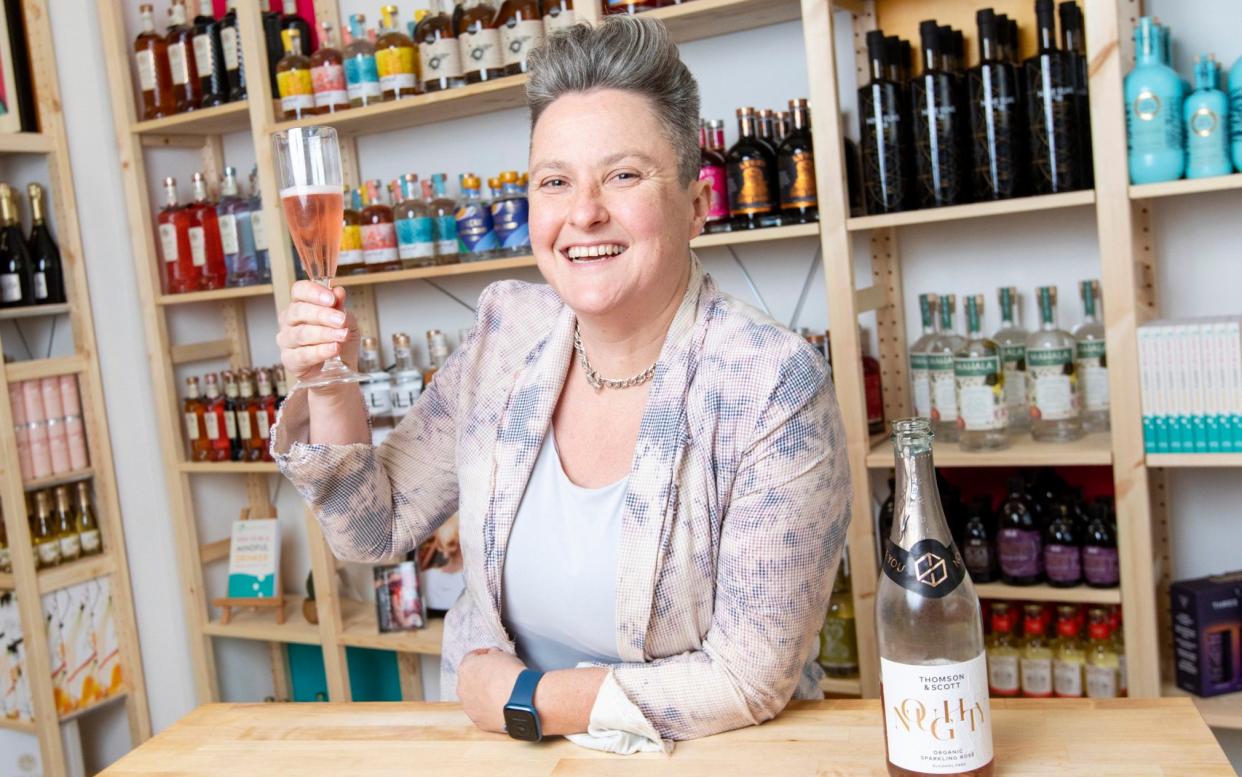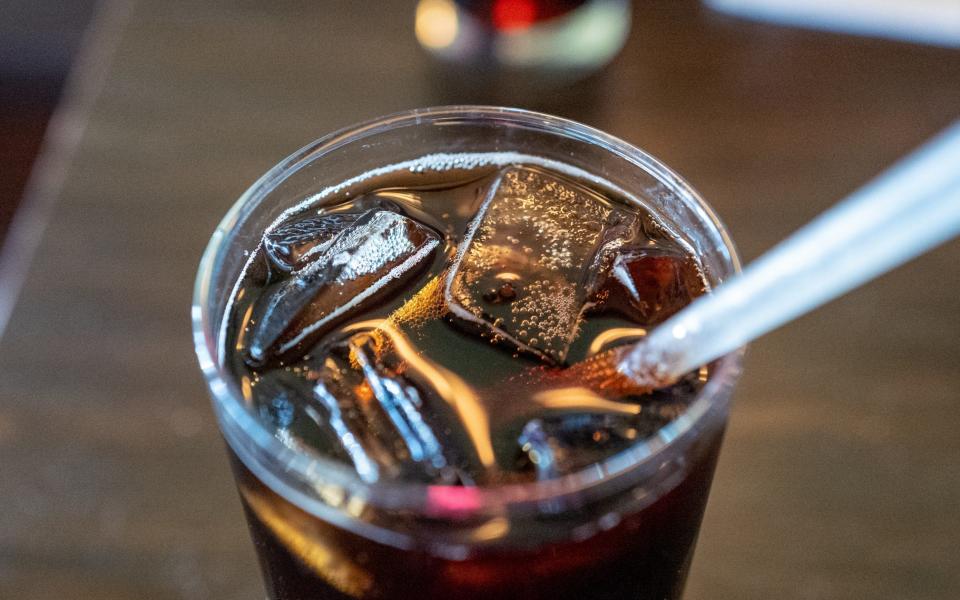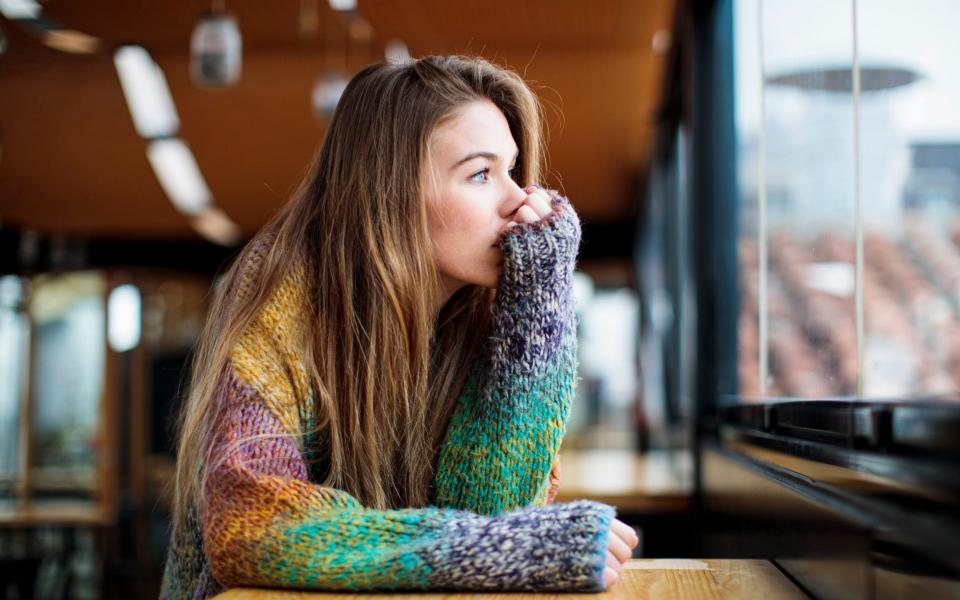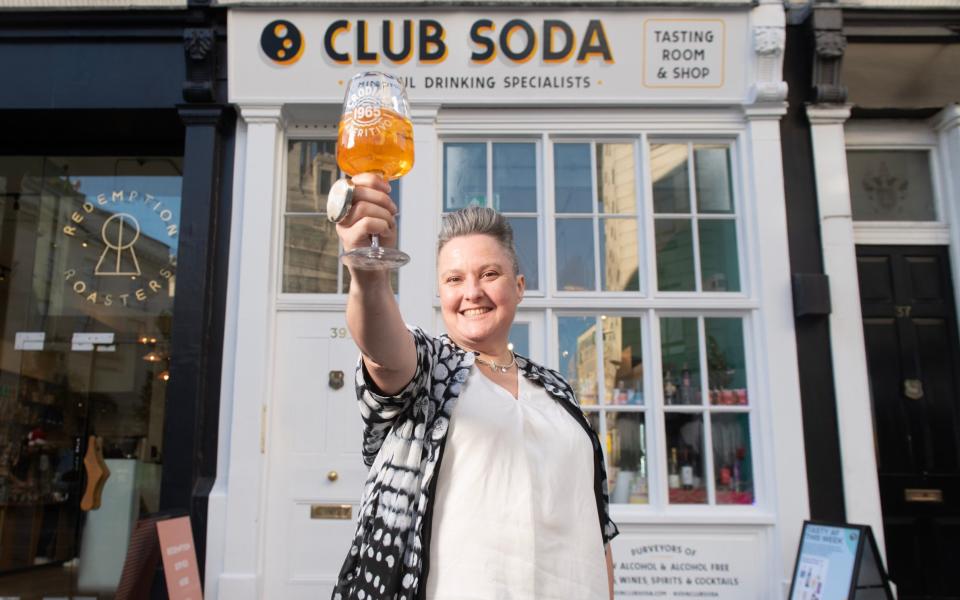They're coming for your G&T – could drinking go the same way as smoking?

Mansi Sharma took her first sip of beer when she was 16 and knew it wasn't for her. Now, aged 24, she's teetotal. Not for any important single reason: she just doesn't see the point of it.
"I tried because I wanted to see for myself what all the hype was about, but personally I don't really enjoy it. I can't tolerate the taste. If I have half a glass I get sleepy, so I prefer just to avoid it," explains the Masters student.
What Sharma enjoys instead are the upsides of not drinking. Coming home at a reasonable time and getting eight hours of blissful sleep. "I've no idea what a hangover is and I've no interest in finding out," she laughs.
Her decision to abstain from drinking isn't unusual among her generation. According to drinks market analyst IWSR, the number of people abstaining from alcohol has risen in the UK, and is much more likely to be drawn from Gen Z - the youngest generation.
"Millennials and Gen Z of legal drinking age represent a higher share [43 per cent] of non-alcoholic and low-alcohol drinkers in the UK than in many other surveyed markets [including Spain, France and Germany]," says Susie Goldspink, head of No- and Low-Alcohol at IWSR.
Personal choice
They are a generation more open-minded about the concept of personal choice. Where once the sober person at a party would be treated like a pariah and perhaps pressured to join in, Sharma says she's never had difficulty mingling or enjoying a party with her friends or people her age because she doesn't drink and they do.
"I've had people asking me why I don't drink and if it's a cultural thing. But they quickly understand that it's simply a choice. I will take a glass of vodka lemonade if I'm in the mood, but more often than not I stick to tea or soft drinks."

Sharma is part of an indisputable decline in total alcohol volume sales across Europe - down 0.9 per cent per year over the past five years. In the UK, sales are falling slightly faster at -1.3 per cent per year, although this decline is not as fast as Germany or France. Spain is the only major European market not in decline (+0.5 per cent).
Among some advocates for abstinence there is a belief that alcohol is following the same trend as cigarettes and will eventually become socially unacceptable.
Many drink lovers will find the comparison overblown, however. Unlike smoking, it is possible to go to a bar, have a soft drink and not get drunk, unlike the problem of passive smoking which was dealt with by the 2007 ban that made it illegal to smoke in most public places in the UK.
Drinking is a personal choice. It is also entwined in centuries of our social history and was once considered a safer option - the impurity of water was largely held responsible for the cholera outbreak in 1848.
Turning tide
However the health tide is turning on alcohol. A 2019 study published in the journal BMC Public Health found that, in terms of cancer risk, drinking a bottle of wine per week may be equivalent to smoking five to 10 cigarettes in the same time period.
According to a WHO report, alcohol-related deaths account for 3.8 per cent of all deaths globally. More than half of these deaths occur from non-communicable diseases, including cancer, heart disease and liver cirrhosis.

This week Canada overhauled official guidance from 15 drinks for men and 10 drinks for women per week to just one or two, and even that comes with "low risk", according to the Canadian Centre of Substance Use and Addiction.
There is little global consensus on guidance. In the UK the advice is no more than 14 units a week over at least three days, and "some" alcohol-free days.
Ireland is up to 17 drinks for men and 11 for women, with two alcohol-free days a week, and Belgium up to 21 drinks a week for men and 14 for women as low risk.
The US meanwhile recommends no more than two drinks a day for men and one for women. Sweden has long regulated the consumption of alcohol; the systembolaget (a government-owned chain of liquor stores) was set up in 1955 in order to limit the harmful effects on society.
Greater awareness of issues around mental health and the link between alcohol and anxiety has played a part in leading many young people to choose a teetotal life. On TikTok, "damp lifestyle" is a new trend focused on drinking in moderation and more mindfully.
Beyond Dry January
Almost nine million adults in the UK have been taking part in Dry January this year, according to research from Dry January creators Alcohol Change UK.
The impact alcohol has on our bodies, from liver issues to sleep to cognitive function, comes into focus during Dry January, but it's a trend that's been growing beyond the traditional seasonal peaks.
Alcohol Change UK's report stated that for one in three young adults who drink (36 per cent), anxiety after drinking has also been a factor in them deciding to reduce their alcohol consumption.

"Hangxiety" - a term used to describe the experience of feeling anxious the day after drinking - appears more prevalent among drinkers aged 34 and under, with two in five (40 per cent) experiencing it regularly, compared to a tenth (12 per cent) of those aged 35 and over. For those aged 18-34, over a third (36 per cent) said it was a contributing factor in their decision to reduce their drinking.
Financial prudence is also a factor. Tash Turgoose, 29, an author and illustrator, hasn't had alcohol for years, calling it: "A waste of money for no gain."
Dominic McGregor, 30, gave up alcohol when he was 23. The co-founder of social media marketing agency Social Chain found himself using alcohol as a crutch to cope with work stress.
He's now a passionate advocate for sober lifestyle choices and a fervent believer that in years to come drinking will see a similar shift in acceptability as that undergone by smoking, which was once seen as being cool.
"People are starting to see the damage and they're choosing not to do that anymore."
Mindful drinking
On a quiet tributary of Covent Garden sits Club Soda's Tasting Room and Shop, a neat and orderly Aladdin's Cave of no- and low-alcohol bottles and cans. Started in 2014, Club Soda is a global community helping people to drink mindfully.
Co-founder Laura Willoughby MBE enjoys a good cup of loose leaf, but it wasn't always so. Now in her late 40s, she hails from the ladette generation, of whom she says "drinking was part of our equality journey".

Excessive drinking was normal and nights out were all about "vertical" drinking, which means: "You just stood at a bar." That's not good enough for young people today, she explains: "There needs to be good food or a quiz. Or somewhere you can watch a bartender craft cocktails. It's considered an experience."
An entire younger generation has not been socially conditioned to think that drinking is a normal way to cope with social anxiety. "My generation were told that if you weren't enjoying a party you should have another drink. We never thought we could just leave," says Willoughby.
Booming low-and-no market
Even festival culture has diversified to reflect a move away from a preoccupation with drinking. At Love Trails Festival, the whole concept is to create an environment that focuses on adventure, running and wellbeing, rather than drinking culture. Last year it introduced a stand on the festival site selling the non-alcoholic beer Lucky Saint and alcohol-free spirit Pentire, with a big uptake by festival-goers.
It's a change that's happening in our homes too. Non-alcoholic Lucky Saint is already Ocado's biggest-selling beer, says Willoughby. "That includes all beer, not just the low-and-no market."

In the UK the low-and-no market is predicted to be worth more than £450 million by 2024, according to Lucky Saint and creative agency Kam, which found that 29 per cent of pub visits and 37 per cent of restaurant visits now involve no alcohol.
Despite these trends, we're still a long way from banning booze from bars.
The outcry about the difficulty of obtaining alcohol in Qatar during the World Cup showed how much alcohol is still tied up in the fabric of Western society and Willoughby says there are still plenty of young people drinking: "It's not like suddenly everyone's gone teetotal."
But, she adds: "I don't think we've ever had a position in society before where 25 per cent of young people would identify themselves as alcohol-free. It's a significant shift from their parents' generation."
Seeking balance
Her customers at Club Soda, however, are more likely to be aged between 35-40, a generation who did develop a taste for booze but are now seeking balance.
Seedlip, Three Spirit, Heineken 0.0 - the alcohol industry is falling over itself to come up with serious alternatives for those who enjoy the flavour profiles of alcohol but aren't keen on the after-effects.
While many younger people will turn their nose up at the idea of a gin and tonic, those in their 30s still want something they can sip away at that feels special. In the future, Willoughby thinks, we'll see an increased range of lower ABV products, not just alcohol-free.
"It's not happening yet as the consumer is very binary - they're either drinking or not drinking. But in the future we'll see a greater diversification of strength in the sector."
Mindful drinking, Willoughby further points out, doesn't have to be about avoiding alcohol, but rather questioning a bit more the what, when and why. So going no-alcohol during the week and lower ABV at the weekend is all part of a gradual change in our drinking habits.
The alcoholic drinks market may be stagnating, but we're unlikely to witness its complete demise. There will always be a demand for products that can elevate experience - Willoughby regularly sells Copenhagen sparkling tea to Muslims wanting to upgrade from juices at weddings and parties.
"Those drinks might just be more diverse in the future. We sell a range of drinks that are mood-enhancing, such as Sentia, a non-alcoholic spirit designed to create the same feeling you have from your first drink."
We will still want to mark a special occasion with something considered in our hands, says Willoughby: "We are social people, we are looking to be part of social occasions and what we drink is part of that. But it shouldn't be about the strength of what you have in your glass."

 Yahoo News
Yahoo News 
